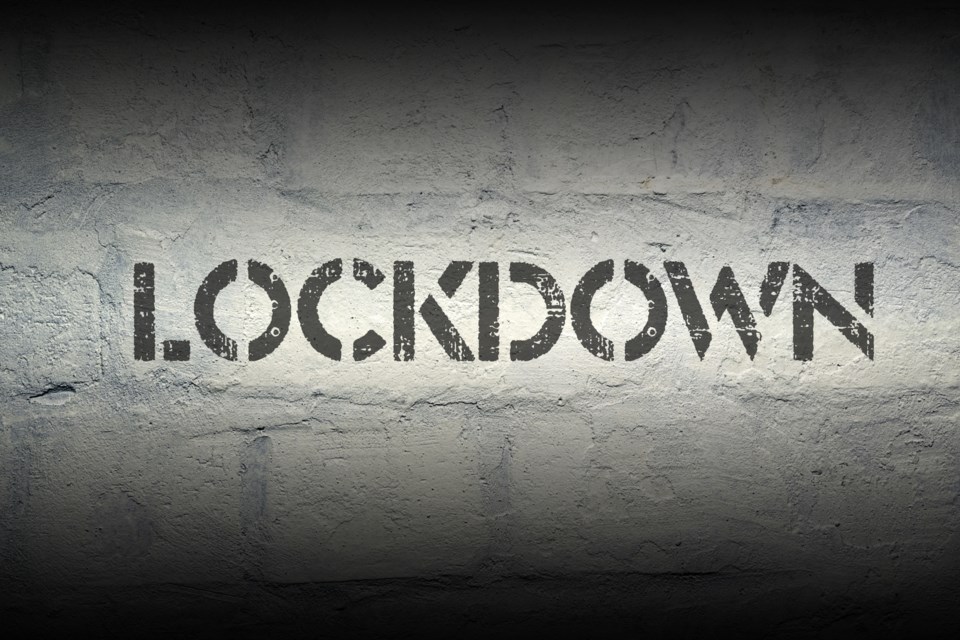Saskatchewan had the seventh-worst lockdown measures that violated residents’ Charter freedoms during the height of the COVID-19 pandemic, despite claiming it was “following the science,” a new report suggests.
On the 40th anniversary of the Canadian Charter of Rights and Freedoms, The Justice Centre for Constitutional Reform (JCCR) released a report called “Who had the worst bunk in Canada’s locked down barracks?” The document ranks provinces from worst to “least worst” on how they infringed upon Canadians’ Charter freedoms to move, travel, associate, assemble, worship and exercise control over their bodies.
The Charter states that Canada is founded upon principles that recognize the “supremacy of God and the rule of law,” with section 2 laying out residents’ fundamental freedoms and section 6 laying residents’ rights to move freely and gain a livelihood, the report explained.
“As a citizen of this country, one’s experience of government’s heavy hand differed significantly, according to where one lived. Indeed, many Canadians felt their country was becoming deeply authoritarian, a police state even,” the document continued. “Even the supine CBC, generally a reliable conduit for the government narrative du jour, published a thoughtful article on how far the violation of personal freedoms could be justified.
The report notes that there was relatively little difference in provincial responses during the first few months of the pandemic. However, over time, the responses to COVID-19 became less similar and less grounded on proven science, even though governments claimed to be “following the science.”
The worst province that infringed on Canadians’ rights was Quebec, followed by British Columbia, Manitoba, Ontario, the Atlantic “Bubble” Maritime provinces, Alberta and Saskatchewan.
The report used several Charter-protected freedoms as benchmarks when comparing provinces, including conscience and religion, peaceful assembly and association, open travel between provinces, liberty and the right to not be arbitrarily detained.
In Saskatchewan and Alberta, centre-right premiers were less committed to lockdowns, inclined to impose them later and lift them earlier, the report said. It’s notable that when nearby B.C. was closing houses of worship completely, neither Alberta nor Saskatchewan prohibited in-person worship entirely.
“Having the least bad bunk in Canada’s lockdown barracks is nothing to be proud of. I hope that Saskatchewan’s politicians, health officials and the public at large do not congratulate themselves in relation to this new report,” said John Carpay, president of the JCCR.
“In every Canadian province, the ‘two weeks to flatten the curve’ became two years to flatten our freedoms,” he added.
Besides governments clamping down on so-called “misinformation” about COVID-19 and vaccines, even colleges of physicians shut down on doctors who spoke against lockdown measures or vaccines.
Dr. Francis Christian, clinical professor of general surgery at the University of Saskatchewan and a practising surgeon for over 20 years, was suspended in 2021 from teaching and fired from the university.
His crime was arguing publicly on June 17, 2021, against injecting children with the new vaccine. While he was vaccinated and recommended vaccinations for others, he was concerned about the lack of informed consent for kids.
“This should apply particularly to a new vaccine that has never before been tried in humans … before the vaccine is rolled out to children, both children and parents must know the risks of mRNA vaccines,” Christian wrote in an open letter to colleagues.
He noted that he had not come across any vaccinated person who had been adequately informed about vaccines for children.
“We conclude that in a time of widespread Charter violations by all provincial governments, the rights of Canadians living in Alberta and Saskatchewan were the least breached during the two years of lockdowns,” the report said, adding that life in Saskatchewan was “minimally impaired compared to the rest of the country.”




